WINTER FIRE SAFETY
These tips may help keep your family and home safe during the cold months.
Tell me what's important
- Winter means cold, which means you will need heating in your home.
- Heating your home comes with risk if not managed safety.
- Think about safety around your home just as you would at work and eliminate hazards.
So as the winter chill sets in, make sure your most home and family are protected and keep your yourself and your family safe this winter this winter.
Install and check smoke alarms
When using heating from electricity, gas or open fire working smoke alarms are a crucial tool to help keep you safe. Test your smoke alarms and make sure they all working and if not fix or replace them, using an electrician for 240-volt smoke alarm replacements. Just remember:
- Smoke alarms need to comply with Australian standards.
- Batteries must be changed annually or when they fail.
- Test alarms monthly to check they’re working by pressing the test button.
Ensure you have operating safety switches
Safety switches detect broken appliances and automatically turn off the power to prevent fires and injury or death by electrocution. Have an electrician check that you have safety switches, ask the landlord and have them tested before winter.
Design, review and practise your escape plan
Consider how you might manage an evacuation, when it might be dark, lots of noise, scorching, smoky, with toxic smoke and your typical egress path is blocked.
- You must plan for and practice evacuation from alternate routes.
- In the event of fire contact triple zero and raise the alarm as soon as possible after escaping by calling emergency service, alerting a neighbour or passer-by.
- Select a suitable and safe assembly point and practice getting to it.
- Have a ladder handy for two-storey homes.
- Practice evacuation from time to time.
- You can blindfold small children and turn the practice into a bit of fun while implanting the escape routine in their mind.
Candles and incense cause fires
Although then they can be romantic, help freshen the home or provide lighting during a blackout, candles can cause havoc if not supervised.
- Ensure you can see lit candles always, as they can cause trouble when not supervised.
- Don’t place candles near curtains or anything flammable.
- Always use candle holders and ensure they won’t fall over.
- Extinguish when leaving the room or going to bed.
Don't leave cooking unattended
If you are like me, you probably love to cook and eat, then it's crucial to keep an eye on the cooking process as distractions lead to a lot of fires in kitchens and trust me it is easily done.
- Don’t leave your cooking unattended.
- Wear tight-fitted sleeves, so they don't catch fire from the stove.
- Turn handles away from your body.
- Keep flammable items away from heat sources.
- Keep a fire blanket and extinguisher in your kitchen, but away from the cooktop
Indoor and outdoor gas heating
Whether you are sitting inside or dining outside during winter Gas heating can be hazardous.
- Keep the heater on a stable well-ventilated surface.
- Keep the heater clear from overhead coverings such as sun shades when using outdoors.
- Always check fittings and hose for tight connection or damage.
Heat bags can cause fires
They are great on cold nights and can help keep your bits warm or help with muscle injuries, but beware, as heat bags come with risk. Avoid heating heat bags for more than the maximum time of 3 minutes as they can overheat and catch fire and they often do. Recommended heat time is 2 to 3 minutes maximum. When heating wheat bags up in the microwave insert a glass of water which will assist in keeping the grain inside the bag moist, thus helping to reduce the risk of combustion.
Dust off electric blanket and use power timer
To minimise the use of your electric blanket to the hours of 7-9pm or 10pm install and set a power timer. This will avoid the blanket being kept on during the night and day.
Don't forget to also check and clean clothes dryer lint filters.
Contact Survival Solutions for information on all fire safety procedures on 1300 040 362

